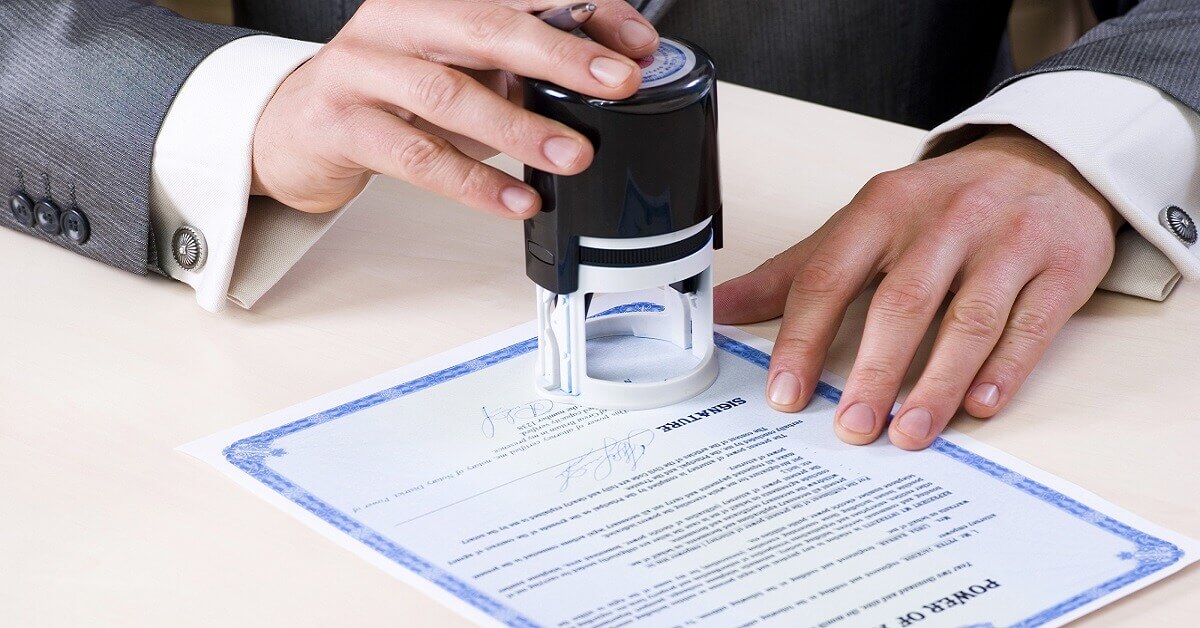A real estate power of attorney is an authorization of a person who can act in the matters of property transfer and other affairs related to property transfer on behalf of the Principal who is the real owner.
Power Of Attorney for Registration before Sub-Registrar
A power of attorney is popularly used to enable the POA holder to carry out the acts of certain types on behalf of the person who makes the power of attorney. He is known as the principal. It is the choice of the principal what power and by how much should be shared with the attorney who happens to be his trusted person. A power of attorney for registration is the act of giving the right to a person or the attorney holder to act on behalf of the principal.
Purpose of Power of Attorney
If due to some reason like ill-health, staying abroad or due to some other compelling circumstances the person, in whose name the property is, cannot present himself before the sub-registrar for the execution of registration, he can appoint someone to act on his behalf and do the execution legally. His act will be considered as if it has been done by the principal himself.
What is contained in a Power of Attorney?
Usually, the power of attorney mentions the date and place in which the document is prepared. It also contains the name, age, address, etc. of the principal and the attorney holder. The deed will mention what power is delegated by the principal to the attorney holder.
Types of Power of Attorney
There can be a general or special power of attorney. A general power of attorney provides sweeping power to the attorney in all situations and all kinds of transactions. A special power of attorney is the one in which the authorization is given for some limited actions such as bank transactions or receiving of rents, etc.
Method of making power of attorney
A person who is above 18 years of age and doesn’t suffer from any mental sickness can be appointed an attorney. No minor can be appointed an attorney.
The power of attorney should be made legally valid and to do so, it has to be signed by both the parties in the presence of witnesses. The attorney is printed on a stamp paper whose value depends on the state of India in which the document is being made. Generally, a power of attorney is not necessarily registered unless for certain circumstances like property matters and transfer of ownership and so on. Both the persons must understand fully their rights and responsibilities as per the deed.
Use of power of attorney for registration
When you buy an immovable property, it has to be registered with the Sub-Registrar’s office after paying requisite fees, and the amount of fees depends on the value of the property.
According to the Supreme Court of India, a general power of attorney is not enough to execute a transfer of ownership right unless the deed of attorney is registered and the required fees and stamp duties have been paid. A general power of attorney without registration and with no payment of fees is limited in application.
Real Estate power of attorney
A real estate power of attorney is used to designate another individual to acquire, mortgage or to sell as an agent on behalf of the principal.
A real estate power of attorney is a document that enables the owner of a property to authorize another person, who is known as an agent or attorney, to act in the matters of property registration, mortgage, sell and purchase of immovable property, etc. The agent can sell, purchase, manage, close and refinance a property belonging to the owner or the principal.
A real estate power of attorney can be used to give power for different types of real estate transactions. It can be for single or multiple transactions. It is needed when the owner is incapacitated to do the job himself for any reason. The power of attorney can be given to a property management company as well. The life of the power of attorney can be terminated if the principal wishes so or it may continue for an indefinite period.
Also read: Power of Attorney and its relevance to NRIs





